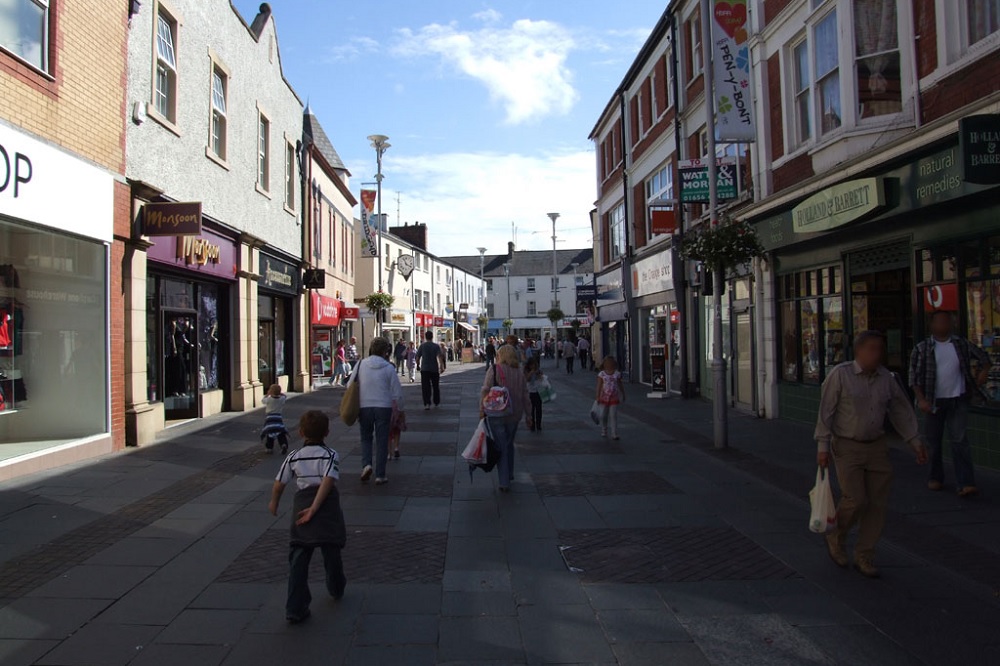Brexit and Covid-19 ’caused hate crime spike’ in borough

Hannah Neary, local democracy reporter
Brexit and coronavirus restrictions have caused a spike in hate crime, according to staff at Bridgend Council.
Officers from Bridgend County Borough Council (BCBC) believe Brexit and government restrictions relating to Covid-19 have caused tensions within the area, contributing to an increase in hate crime this year.
Community Safety and Partnerships Manager Judith Jones said 2020 has been “a perfect storm” of local and national events that have influenced the spike in hate crime.
She added: “We will continue to monitor tensions and work closely with partners including South Wales Police in particular to make sure we know as much as we can about what’s going on in communities.”
A report by council officers revealed the number of hate crime incidents in Bridgend County Borough rose steadily between May and August this year. It also shows the number of incidents was consistently higher from April to September 2020 than during the same period in 2019 and 2018.
The highest number of incidents over the last three years was recorded in August 2020 with 23 cases being reported, compared to four cases reported in August 2019 and August 2018.
The report reads: “Although still low in numbers there has been a spike in reports of hate crime in Bridgend County during recent months. This increase has been reflected in most local authorities across Wales.
“Some of these additional incidents may be due to increased reporting following campaigns and the work done during hate crime weeks.
“The restrictions associated with Covid-19 have presented problems, including disputes with neighbours and complaints over ‘gatherings’ and re-housing some homeless individuals.”
The report also stated the closure of children and young people’s facilities has caused an increase in antisocial behaviour “in some areas”, which can cause tension in the community.
‘Racists’
The council’s cabinet member for communities Richard Young said there was a spike in hate crime in Bridgend County Borough following the Brexit referendum in 2016. He said the rise in hate crime “has been fed by a hostile government” and “elements of the press” in the UK “that are anti-European Union”.
The Pendre representative said: “It’s a shame that my country seems so unfriendly and so unwelcoming”.
Cllr Young said he fears there will be “some sort of outpouring of triumphant nationalism” on January 01 2021 when the UK officially leaves the EU.
“My fear is that the ultra right wing in the UK are not going to let our leaving the EU on Janurary 1 go quietly. I am encouraged to see the arrangements that are put in place to try and avoid so much hate crime in the UK.”
The council’s cabinet member for education and regeneration Charles Smith said: “We know that not all Brexit voters were racist but we do know that the Brexit vote benefited from 40 years of poison from sections of the press – daily lies about immigrants and asylum seekers and certain irresponsible politicians.”
Mr Smith claimed Prime Minister Boris Johnson, Conservative MP Michael Gove and leader of the Brexit Party Nigel Farage “gave license to out and out racists to speak what they didn’t dare to speak before”.
“We are suffering from that now,” he added.
‘Rich culture’
Cllr Dhanisha Patel, cabinet member for wellbeing and future generations, suggested the council promotes guidance on how to spot inaccurate content online.
“I sometimes see that people share things on social media when I don’t think they know who the originator of that info is and whether or not that content is accurate.”
In 2018, the Welsh Government gave each region in Wales £140,000 to monitor and tackle community tensions relating to Brexit. Such incidents include hate crime, extremism and antisocial behaviour and are covered by community cohesion coordinators (CCCs).
Riaz Hassan, CCC for Bridgend and Neath Port Talbot, has worked with South Wales Police and other partners to promote the Black Lives Matters protests in Bridgend and Porthcawl earlier this year.
He has also researched the most common ethnicities in Bridgend County Borough schools.
According to Mr Hassan’s research, date from January 2020 revealed White – British is the most common ethnicity of school pupils in the county borough, followed by Polish, then White and Asian.
These are the most common ethnicities in Bridgend County Borough schools:
- White – British – 21,480
- Polish – 184
- White and Asian – 125
- Other White – 100
- White and Black African – 92
The top three most common European ethnicities are Polish (184), White European Other
(78), and Romanian (27).
The top three most common non-EU ethnicities are Filipino (90), Indian (74) and White and Chinese (46).
Morfa representative Councillor Stuart Baldwin said: “It’s great to see the rich culture of people that are inhabiting Bridgend.”
Council leader Huw David said people of all nationalities living in Bridgend are “valued members” of the community.
“Particularly now during this pandemic and in the run-up to Christmas we have to keep repeating that message”, he said. “They are our neighbours, our friends and they are welcome here.”
Support our Nation today
For the price of a cup of coffee a month you can help us create an independent, not-for-profit, national news service for the people of Wales, by the people of Wales.






